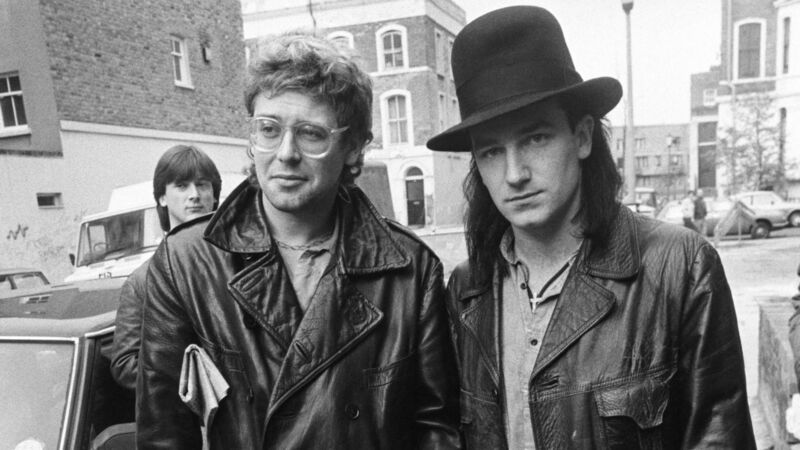Tom Dunne's Music & Me: The tricky business of truth and album reviews

Adam Clayton and Bono of U2 in 1984, a few weeks after the release of The Unforgettable Fire had left some critics scratching their heads. Picture: Larry Ellis/Express Newspapers/Getty
There was always one in school. You’d name a band you liked and they’d sneer at you. Then they’d name a band no one had heard of: “The Coat Hangers of Death.” Admitting you were unfamiliar with their ‘oeuvre’ revealed you as banal, plebeian, uninformed and inferior.
Today, in the valley of the clickbait, these people are King. A consequence of their rise is the demise of the ‘Seer’, those who could, on one listen, recognise actual talent. People like Jon Landau who, on seeing a young rock act in 1974 declared, “I have seen rock and roll’s future, and its name is Bruce Springsteen.”





